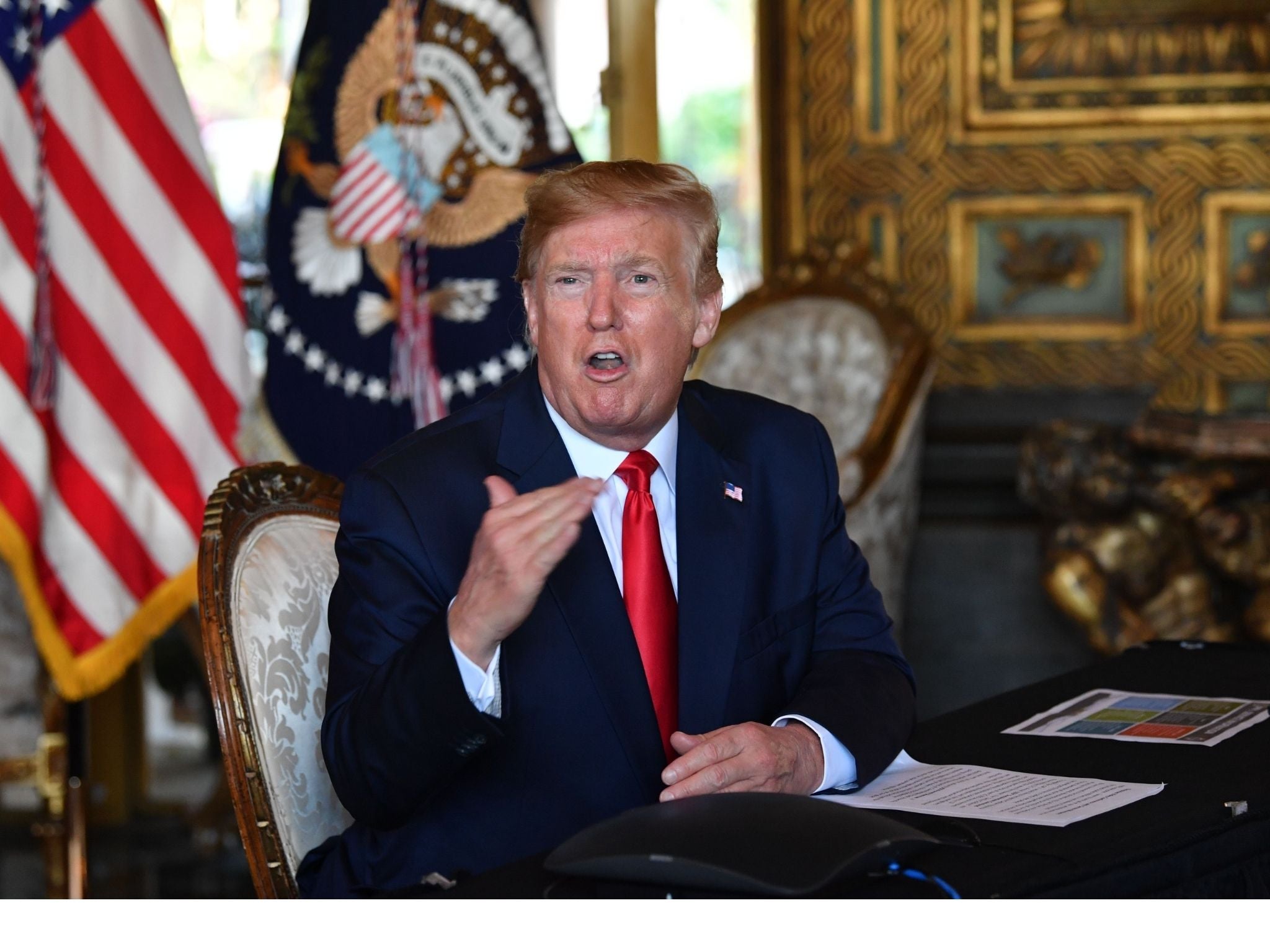Donald Trump and Joe Biden faced off in an election that was very 2020 – but what happens now?
The outgoing commander in chief is not expect to concede the 2020 election – ever, according to Washington insiders. John T Bennett asks what comes next


The 2020 US presidential election was so, well, 2020.
In a year besieged by a global pandemic and repeated spikes in coronavirus cases in the United States and Europe – amid mask-wearing becoming the biggest American political issue – it seems fitting that Donald Trump likely will never concede a race to Joe Biden that he lost by over a half million votes in six key swing states.
Federal judges from Nevada to Arizona to Georgia to Pennsylvania to Michigan have thrown out his campaign team’s lawsuits trying to invalidate enough ballots to make the president the winner in enough battlegrounds to secure a second term. The Electoral College made Mr Biden the president-elect on 14 December, and the next day Senate Majority Leader Mitch McConnell declared the election over and Mr Biden the winner.
Nevertheless, even as the days are quickly ticking down to 20 January, when Mr Biden will be sworn in, Mr Trump and his band of loyalists continue making allegations which they have yet to prove.
“You had an election where we had mass mail-in voting on a nationwide scale, never tried before at this level. I mean, you had these anomalies and more in places like Pennsylvania,” White House press secretary Kayleigh McEnany said recently.
She has toggled between her technical day job – Mr Trump’s government-paid top spokesperson – and the official spokesperson of his campaign – even though it has one: former White House principal press secretary Hogan Gidley.
“They get rid of signature match and 0.038 percent [of ballots] are rejected,” she alleged about the Keystone State, which state officials say Mr Biden won by 81,660 votes.
“That means they accepted 27 times more absentee ballots because they got rid of signature match,” Ms McEnany said. “They pre-cured ballots, they fixed them in some counties and not others, and the result was a tainted election that did not really capture the vote of the American people.”
Only multiple federal judges – some appointed by Mr Trump or other GOP presidents – say the election was accurate and the Trump camp has no proof. Those jurists have noted that despite public allegations of voter fraud, the president’s team is not arguing on those grounds in court.
Mr Trump is not expected to ever say he was simply beaten by Mr Biden, Washington insiders say.
But he came about as close as anyone likely should expect on 24 November when he claimed he instructed an obscure federal office to unlock Mr Biden’s formal transition process.
‘Unsupported by evidence’
The truth the president ultimately could not ignore was driven home in a pointed decision a few days earlier from US district judge Matthew Brann, who unceremoniously tossed a Trump campaign’s suit claiming widespread voter fraud in Pennsylvania. Mr Brann wrote that the Trump team presented little more than “strained legal arguments without merit and speculative accusations.”
The federal judge, despite the president and his legal team continuing to promise to release some, added the claims were "unsupported by evidence.”
"In the United States of America, this cannot justify the disenfranchisement of a single voter, let alone all the voters of its sixth most populated state,” Judge Brann wrote. “Our people, laws, and institutions demand more.”
That ongoing drama, which put the now-outgoing Attorney General William Barr in Mr Trump’s crosshairs for saying the Justice Department had uncovered no proof of the voter fraud scheme the president is claiming, followed a pandemic-limited campaign.
But the two candidates’ messages could not have been more different.
Mr Trump ran on conservative populism while Mr Biden sold himself as a left-of-centre pragmatist – and one who would not run the White House like a reality television set.
Mr Biden’s proposed slow-but-steady leadership approach won out, as he secured 306 Electoral College votes to Mr Trump’s 232. But even with such a wide margin of victory, the incoming president is mindful that his opponent received 74.1m votes – 10m more than he got four years ago.
Locked and loaded
While Trump says he will vacate the White House on 20 January if Mr Biden is certified as the winner, Trumpism is locked and loaded to continue shaping the Republican Party and US politics for some time.
“In Michigan and Wisconsin … Biden won in the most prosperous cities and their suburbs, while Trump held on to the states’ rural areas,” according to John C Austin of the Michigan Economic Center and the Brookings Institution.
“As in 2016, Trump also won numerous struggling older industrial city-regions, which used to be Democratic, blue-collar strongholds,” he noted. “Meanwhile, Biden carried a number of older industrial communities that had turned an economic corner – some that were once squarely Republican.”
Though Republicans lost the White House, they gained seats in the House and might hold onto their Senate majority, defying almost all prognostications.
That’s why former White House Acting Chief of Staff Mick Mulvaney recently said he sees “a lot of good things to be taken away from the election … and one of them is the successes in the House and the likelihood of a Republican takeover of the House in 2022.”
So as Democrats prepare to celebrate Mr Biden’s 20 January inauguration, Mr Mulvaney’s party is feeling confident about its future – whether it includes another run by Mr Trump in 2024.
“What you learn is the farther down ballot you go, the more the candidates matter,” he said. “And I think what the Republican Party has done very well under [House Minority Leader] Kevin McCarthy's leadership in the House especially is to go out and recruit really, really good candidates. That makes a difference.”
Another thing that will make a difference in four years: whether Mr Trump is again at the top of the Republican side of the ballot. But he is not saying just yet what he intends to do. Another cliffhanger from the first reality television commander in chief.
As always, stay tuned.




Join our commenting forum
Join thought-provoking conversations, follow other Independent readers and see their replies
Comments